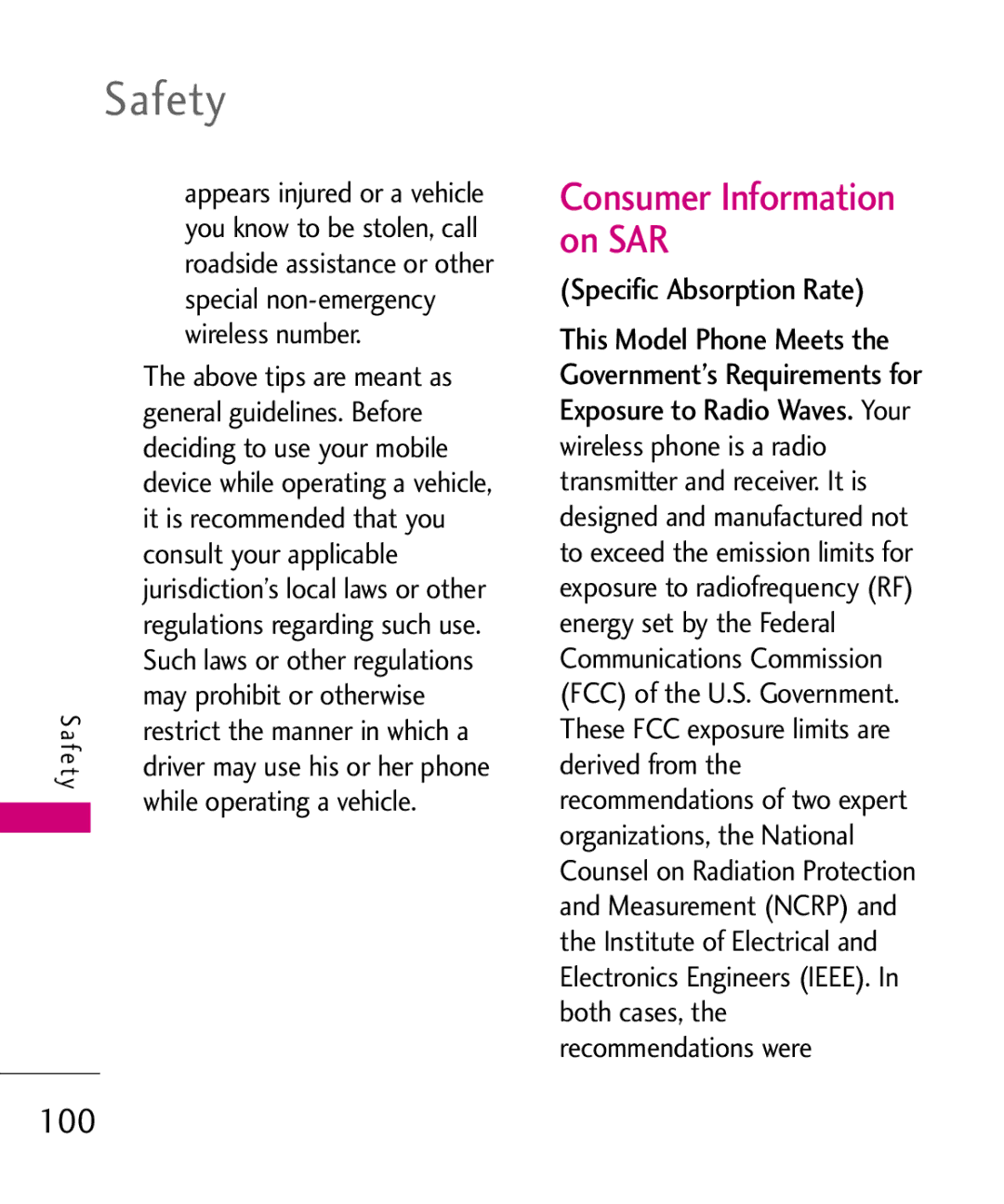Safety
|
| appears injured or a vehicle |
|
| you know to be stolen, call |
|
| roadside assistance or other |
|
| special |
|
| wireless number. |
|
| The above tips are meant as |
|
| general guidelines. Before |
|
| deciding to use your mobile |
|
| device while operating a vehicle, |
|
| it is recommended that you |
|
| consult your applicable |
|
| jurisdiction’s local laws or other |
Safety | regulations regarding such use. | |
Such laws or other regulations | ||
|
| may prohibit or otherwise |
|
| restrict the manner in which a |
|
| driver may use his or her phone |
|
| while operating a vehicle. |
Consumer Information on SAR
(Specific Absorption Rate) This Model Phone Meets the Government’s Requirements for Exposure to Radio Waves. Your
wireless phone is a radio transmitter and receiver. It is designed and manufactured not to exceed the emission limits for exposure to radiofrequency (RF) energy set by the Federal Communications Commission (FCC) of the U.S. Government. These FCC exposure limits are derived from the recommendations of two expert organizations, the National Counsel on Radiation Protection and Measurement (NCRP) and the Institute of Electrical and Electronics Engineers (IEEE). In both cases, the recommendations were
